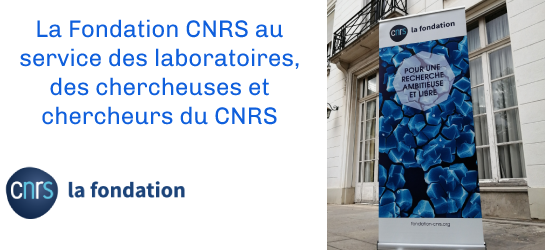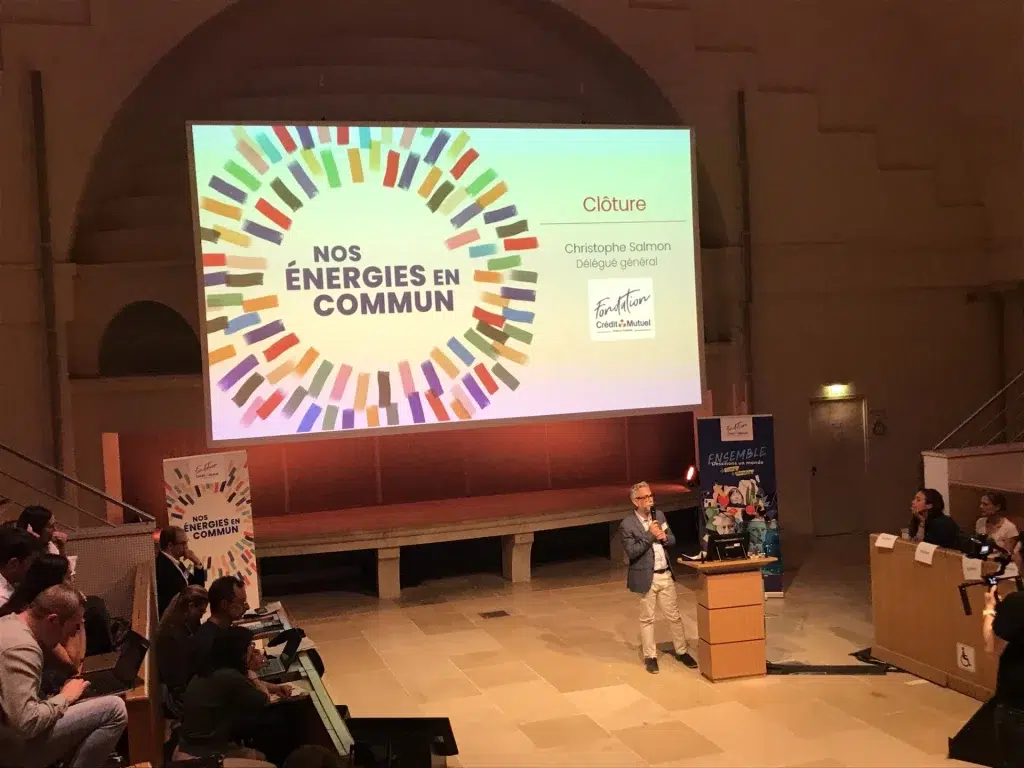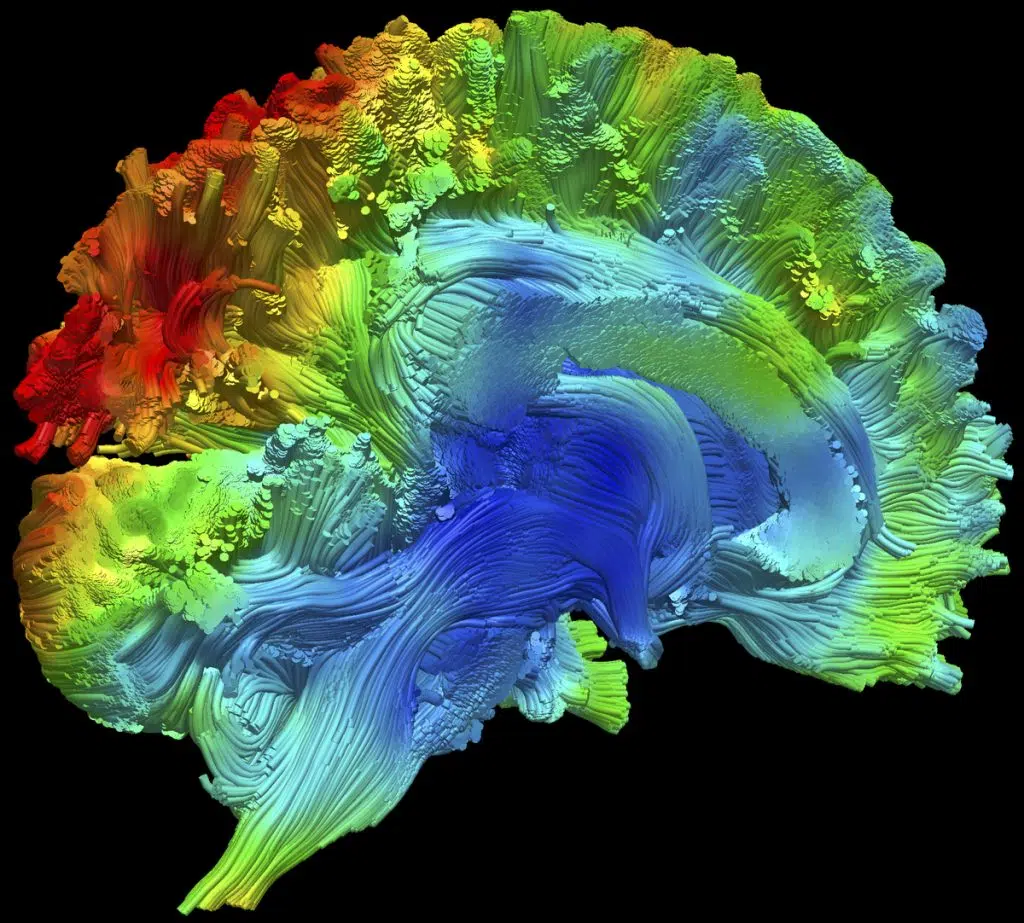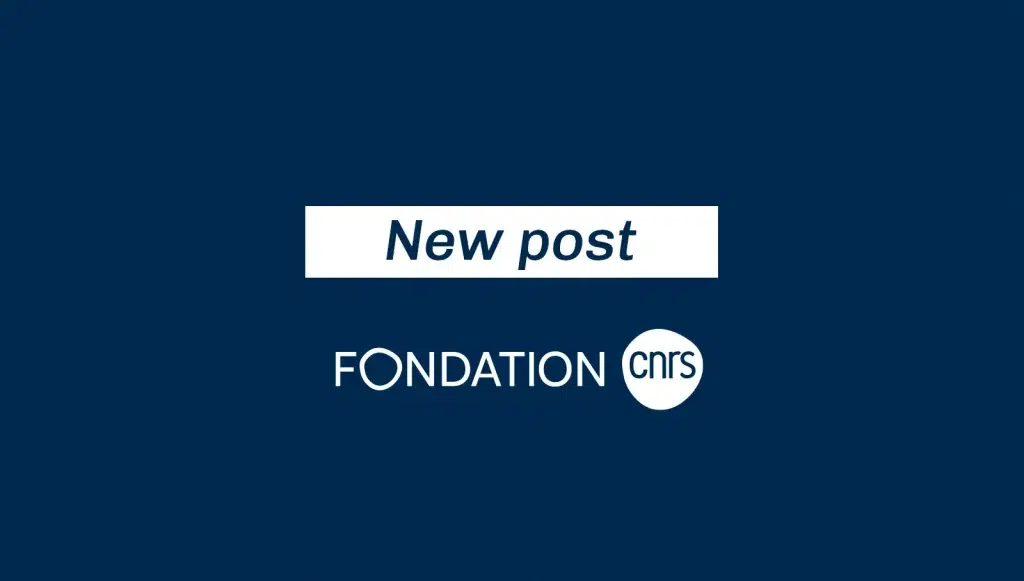“The CNRS Foundation: a toolbox for CNRS laboratories and researchers”.
[/vc_column_text][vc_empty_space height=”10px”][vc_single_image image=”4572″ img_size=”medium” alignment=”center”][vc_column_text]
The CNRS Foundation is evolving. Over the past two years, the CNRS Foundation has set up a number of initiatives to support research, in particular foundations under aegis to support projects for society and research.
“The multidisciplinary nature of the research carried out at CNRS offers a very broad panorama ranging from climate change to educational inequalities… and the CNRS Foundation reflects these many societal issues and supports them both via corporate sponsorship, and through targeted financial support, right up to the foundation under aegis ,” testifies Michel Mortier, Managing Director of the CNRS Foundation. Officially created to mark CNRS’s 80th anniversary in 2019, the Foundation became operational in January 2020. It has already collected more than 850,000 euros in donations in two years, which have supported around ten projects, notably in connection with the Covid-19 crisis, rare diseases, atypical intelligences, climate change, …. The CNRS Foundation has also set up a program to recognize corporate philanthropy. This is an important step in the development of a corporate philanthropy strategy. CASDEN and GROUPAMA are already patrons of the CNRS Foundation. ” We are currently building up a range of research projects to be supported under different themes, so that companies can identify with their choice of patronage”, he adds.
“Non-commercialization of research work”.
From the outset, the CNRS Foundation has been keen to offer the possibility of “sheltering” other foundations – a process it accelerated in 2021. ” The Fondation sous égide was a much-awaited tool for CNRS institutes and their researchers, enabling them to promote certain research projects on a non-commercial basis ,” explains Michel Mortier. This arrangement is very attractive for a project, as it means that the initiator does not have to set up his or her own foundation, but can host it within the CNRS Foundation to benefit from its legal and financial support. The project leader and his or her team can concentrate on finding sponsors. ” For a project leader, choosing a foundation under aegis means enjoying the same advantages as if they had created their own foundation, without the red tape. In particular, the CNRS Foundation offers the opportunity to promote projects with “no commercial expectations”, such as open-source software, which cannot be bought but “lives on within many research communities”; or to promote work in the humanities and social sciences, which “does not always have commercial spin-offs”.
“A win-win strategy
Since the creation of the CNRS Foundation, three foundations under aegis have been set up: the Rescue Ocean Foundation, GEOMANUM and the 2100 Foundation, and a fourth is about to join them. To create a foundation under aegis, the object of the foundation to be created must be compatible with that of the CNRS Foundation. ” Rescue Ocean, which comes from civil society and was not originally linked to the CNRS, was the first project to call on us to create its foundation under aegis. This foundation, whose aim is to raise public awareness of the state of the environment, seas and oceans, was ready to develop participatory science actions with CNRS researchers. Today, the Rescue Ocean Foundation has a correspondent at the CNRS Institute of Ecology and Environment (INEE), who acts as a link between the needs of researchers and those of the CNRS. the Rescue Ocean Foundation Ocean and provides his team with sampling methodologies for collecting environmental data.
” CNRS is a recognized name, a strong and reliable value in terms of credibility. And it’s this credibility that the CNRS Foundation gives us. It’s proof that our projects are real projects with real values, explains Betty Mazet, co-founder of the Rescue Ocean Foundation. For these associations and projects, taking advantage of the CNRS Foundation’s hosting is a “win-win” situation. They benefit from the reputation and reach of the CNRS and contribute to the development of the Foundation. This is the case for the GEOMANUMfoundation, a project that puts geographic information sciences at the service of ecological transition and adaptation to climate change in the territories, led by CNRS researcher Erwan Bocher of Lab-STICC1. This project, which ultimately aims to produce data and maps to support development projects, evaluate public policies and measure their impact on natural resources and mankind, has a high societal profile. ”
I’ve been looking forward to the creation of the CNRS Foundation. For over 10 years now, I’ve been working on this project to conduct research in the regions with all the players in society – associations, companies, local authorities and laboratories. At first, I tried to give it the form of a public interest group, or even a University Chair”, explains Erwan Bocher. The CNRS Foundation gave GEOMANUM the opportunity to build a cooperative, federative project based on research using the techniques and methods of open sciences, turned towards society. “ It made perfect sense for the project to be supported by a Foundation, and even more so by the CNRS Foundation, which gives us this national and international visibility. ”
“Projects for research and society
The Fondation 2100 also recognized the value of the CNRS’s multidisciplinary positioning for its project. Composed of a circle of intellectuals, they reflect on the future of society 100 years from now. ” One of the founders devoted his entire life to foresight, making it a discipline in its own right,” explains Michel Mortier, adding: ” By linking up with the CNRS Foundation, Fondation 2100 will be able to draw on the work of CNRS researchers to advance its thinking. ” The latest addition to the CNRS Foundation’s ranks is a project born at LAAS2 concerning an intelligent electrical distribution network where everyone will be a producer and consumer of energy.
” The team is developing the possibility for everyone to store their energy through AI with fully programmable, royalty-free power electronics. They are activist researchers who are carrying out this project for the good of society. By joining the CNRS Foundation, they want to ensure that their data is protected from private or individual interests. ”
So many projects for society and research that the CNRS Foundation helps to carry out and develop. ” The CNRS Foundation aims to be a toolbox for laboratories and researchers. On July 7, it will be organizing an event in honor of its first three foundations under its aegis, to encourage project leaders to join.




